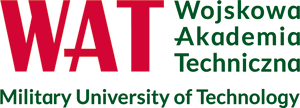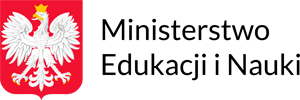Journal ethical standards (COPE)
The editorial staff of the scientific journal "National Security Studies" undertakes to comply with the standards of ethical conduct at all stages of the publication process recommended by COPE (Committee on Publication Ethics). Detailed information on the criteria is presented in the diagrams COPE.
The editorial staff of the journal "National Security Studies" accepts articles that have not been published yet and that meet the following criteria:
adjustment to the requirements formulated in editorial requirements and substantive guidelines; use of research results that have not been previously described in any other article and have not been published in other journals; reliable preparation of the reference list and application of the citation rules adopted by the journal; the reference list should include only those items that were cited in the text; The editors do not accept any form of plagiarism (including autoplagiarism, copying all or parts of other works without specifying the source, signing only one's name on a work written jointly with another person/s, appropriation of authorship, publishing someone else's work with changes, e.g. editorial, stylistic ); signing by the authors of the following declarations:
Authors submitting their articles for publication in the journal “National Security Studies” are obliged to:
prepare the article to the best of their knowledge and with due diligence; participate in the review process, i.e. they are obliged to make all suggested changes and corrections and correct all errors identified (by the reviewer, but also by the journal's editorial staff); in the event that the authors do not agree with selected comments or proposals of the reviewer or editor, they should justify their opposition in writing; declaring their contribution to the creation of the article and the course of research, if the article is of a research nature, by completing a declaration of the contribution of individual authors to the creation of the publication; undertaking that all data used in the article are real and authentic; indicating in a separate part of the article thanks to institutions or people who contributed to the creation of the article but cannot be indicated as co-authors, as well as clear information that the article was created thanks to funding, e.g. in the form of grants, subsidies, projects, etc.
Reviewers cooperating with the journal “National Security Studies” are obliged to:
perform the review within the designated deadline, using the review form adopted by the editorial office; the review should end with an unambiguous conclusion as to whether the article should be accepted for publication or withdrawn; formulating an objective, constructive, reliable and fair review; respecting all confidentiality rules; declaring all possible forms of conflict of interest (a conflict of interest between the reviewer and the author is considered to be direct personal relations, kinship, legal relationships, professional conflict and subordination, direct scientific cooperation in the last two years preceding the preparation of the review); performing reviews only of those articles that are consistent with their research interests and the field of science they are involved in; suggesting to the authors that they expand their knowledge with previously published works on a given issue, if necessary (in the event that the lack of reference in the text to a given work/works results in it being considered unreliable, out of date, etc.); rejecting any personal prejudices and bias when performing the review, avoiding emotional statements in the review; disclose any detected cases of plagiarism or other ethical irregularities.
The editors of the journal "National Security Studies" are obliged to:
ensure that there is no conflict of interest in the review process, as well as in the process of rejecting or accepting articles; have full responsibility and authority when rejecting or accepting articles, and select articles in a justified and reasonable manner; eliminate and document any manifestations of violations and infringements of the principles of ethics in force in science, including disclosed cases of scientific dishonesty - "ghostwriting" (omitting in the authorship or acknowledgments a person or institution that contributed to the creation of the article) and "guest authorship/honorary authorship" (indicating as a co-author a person whose contribution to the article is negligible or non-existent); in connection with this, the editors declare that all detected cases of "ghostwriting" and "guest authorship" will be exposed, including notifying the appropriate entities, including the institutions employing the authors; informing the authors of any errors noticed and requesting their correction or removal; ensuring the proper course of the review procedure (anonymity of the review, mediation between the reviewer and the authors); accepting a refusal to perform a review in cases justified by the reviewer (e.g. when the reviewer declares that the article does not coincide with his/her research interests and the field of science he/she deals with); correcting editorial, stylistic, grammatical, spelling and punctuation errors, as well as using abbreviations without informing the authors; in the event of substantive errors being revealed, the editorial office should consult the authors on their correction; forwarding a .PDF file with the article to the authors at the stage of graphic composition for the purpose of authorial correction and final acceptance of the article's content; referring articles prepared in violation of the publication regulations back to the authors for correction; considering all cases of complaints from the authors.
The editors of the "National Security Studies" magazine declare that:
monitoring the application by all persons involved in the publishing process of all ethical principles formulated in this declaration; takes care to maintain the integrity of scientific achievements, i.e. in the event of detecting that a published article contains inaccuracies, the data introducing error or falsified data, information about this fact should be published in a prominent place, the article should be withdrawn, including from reference databases, to prevent its citation; is ready to publish any corrections, clarifications, references and corrections if necessary; applies the following rules for rejecting articles: rejection of an article after the initial decision of the Editor-in-Chief or the Thematic Editor regarding failure to meet the scientific requirements, incompatibility of the subject matter with the profile of the journal, gross language errors, poor bibliography, detection of any signs of unreliability described in this declaration; rejection of the article after a negative review; rejection of the article if the authors do not submit an author's declaration regarding the transfer of copyrights, a declaration of no conflict of interest and (if the article was written by two or more authors) a declaration of the contribution of individual authors to the publication.
PUBLICATION AND AUTHORSHIP
The editorial staff of the journal "National Security Studies" accepts articles that have not been published yet and that meet the following criteria:
- author's statement confirming the originality of the text and the source of funding;
- author's statement - property rights;
- author's statement - authors' contribution.
AUTHORS' RESPONSIBILITY
Authors submitting their articles for publication in the journal “National Security Studies” are obliged to:
SCIENTIFIC REVIEW/REVIEWER'S RESPONSIBILITY
Reviewers cooperating with the journal “National Security Studies” are obliged to:
EDITORS' RESPONSIBILITY
The editors of the journal "National Security Studies" are obliged to:
ETHICAL ASPECTS OF PUBLICATION
The editors of the "National Security Studies" magazine declare that:
We process personal data collected when visiting the website. The function of obtaining information about users and their behavior is carried out by voluntarily entered information in forms and saving cookies in end devices. Data, including cookies, are used to provide services, improve the user experience and to analyze the traffic in accordance with the Privacy policy. Data are also collected and processed by Google Analytics tool (more).
You can change cookies settings in your browser. Restricted use of cookies in the browser configuration may affect some functionalities of the website.
You can change cookies settings in your browser. Restricted use of cookies in the browser configuration may affect some functionalities of the website.








